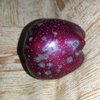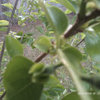blueberries need magnesium and potash but have low pH
sharppa
9 years ago
Related Stories

GARDENING GUIDESNew Ways to Think About All That Mulch in the Garden
Before you go making a mountain out of a mulch hill, learn the facts about what your plants and soil really want
Full Story








drew51 SE MI Z5b/6a
Bradybb WA-Zone8
Related Professionals
Benbrook Landscape Architects & Landscape Designers · Marco Island Landscape Architects & Landscape Designers · Marina Landscape Architects & Landscape Designers · Prairie Ridge Landscape Architects & Landscape Designers · Seabrook Landscape Architects & Landscape Designers · Signal Hill Landscape Architects & Landscape Designers · Garden City Landscape Architects & Landscape Designers · Surprise Landscape Contractors · Cockeysville Landscape Contractors · Estelle Landscape Contractors · Garland Landscape Contractors · Lake Zurich Landscape Contractors · Manhattan Landscape Contractors · Painesville Landscape Contractors · Palos Heights Landscape ContractorsSlimy_Okra
drew51 SE MI Z5b/6a
Slimy_Okra
drew51 SE MI Z5b/6a
Slimy_Okra
drew51 SE MI Z5b/6a
drew51 SE MI Z5b/6a
Slimy_Okra
drew51 SE MI Z5b/6a
alan haigh
drew51 SE MI Z5b/6a
rayrose
alan haigh
drew51 SE MI Z5b/6a
alan haigh
garybeaumont_gw